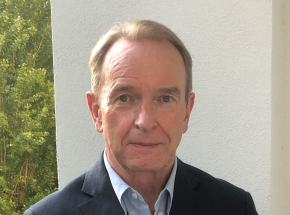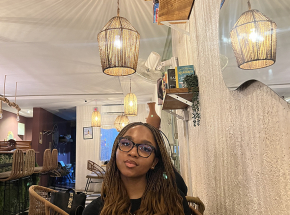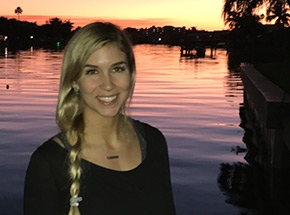- About AUP
- History of AUP
- Mission & Core Values
- Vision and Leadership
- AUP Recognition
- Alumni Success
- Campus Development
- Arts at AUP
- Policies & Guidelines
- Academics
- Undergraduate
- Graduate Programs
- MA in Diplomacy and International Law
- MA in Global Communications
- MSc in Human Rights and Data Science
- MA in International Affairs
- MA in International Affairs, Conflict Resolution, and Civil Society Development
- MSc in International Management
- MSc in Strategic Brand Management
- Find Your Thesis Advisor
- Previous Programs
- Cultural Program
- Faculty
- Summer School
- Research Centers
- The Center for Critical Democracy Studies
- Upcoming Events
- Research Projects
- Fellows’ Publications
- Publishing
- Curriculum
- Community
- Partnerships
- Visiting Scholars
- CCDS Highlights
- Atelier de Théorie Politique – Paris
- Critical Theory 101: Future Directions and New Challenges
- Martti Koskenniemi on “The Law of International Society: A Road not Taken”
- Academic Freedom Symposium
- Tocqueville Colloque 2023
- Violent Turns Conference
- Degenerations of Democracy
- DEMOS21 Inaugural Event
- What Demos for the 21st Century?
- The Paris Centennial Conference
- Justice Stephen Breyer
- Civic Jazz - The Launch of the Center
- Past Events
- FR
- The Center for Writers and Translators
- The George and Irina Schaeffer Center for the Study of Genocide, Human Rights and Conflict Prevention
- The Joy and Edward Frieman Environmental Science Center
- The Center for Media, Communication & Global Change
- The Center for Critical Democracy Studies
- Departments
- Academic Resources
- Academic Affairs
- Academic Calendar
- Academic Resource Center
- Library
- Registrar's Office
- Teaching and Learning Center
- Accessibility & Accommodation Services
- AI@AUP: A Campus-Level Initiative
- Quai D'Orsay Learning Commons
- Paris as Classroom
- ACE
- Admissions
- Student Life
- Campus
- Student Leadership & Involvement
- Paris
- Support Services
- Student Life Help Desk
- Student Accounting Services
- Student Immigration Services
- Student Grievance Procedure
- Diversity and Inclusion
- Health & Well-being
- Digital Student Handbook
- News
- Events
- AUP Giving
- Housing Offer for 2025-2026
- IT Services
- Alumni
- About AUP
- History of AUP
- Mission & Core Values
- Vision and Leadership
- AUP Recognition
- Alumni Success
- Campus Development
- Arts at AUP
- Policies & Guidelines
- Academics
- Undergraduate
- Graduate Programs
- MA in Diplomacy and International Law
- MA in Global Communications
- MSc in Human Rights and Data Science
- MA in International Affairs
- MA in International Affairs, Conflict Resolution, and Civil Society Development
- MSc in International Management
- MSc in Strategic Brand Management
- Find Your Thesis Advisor
- Previous Programs
- Cultural Program
- Faculty
- Summer School
- Research Centers
- The Center for Critical Democracy Studies
- Upcoming Events
- Research Projects
- Fellows’ Publications
- Publishing
- Curriculum
- Community
- Partnerships
- Visiting Scholars
- CCDS Highlights
- Atelier de Théorie Politique – Paris
- Critical Theory 101: Future Directions and New Challenges
- Martti Koskenniemi on “The Law of International Society: A Road not Taken”
- Academic Freedom Symposium
- Tocqueville Colloque 2023
- Violent Turns Conference
- Degenerations of Democracy
- DEMOS21 Inaugural Event
- What Demos for the 21st Century?
- The Paris Centennial Conference
- Justice Stephen Breyer
- Civic Jazz - The Launch of the Center
- Past Events
- FR
- The Center for Writers and Translators
- The George and Irina Schaeffer Center for the Study of Genocide, Human Rights and Conflict Prevention
- The Joy and Edward Frieman Environmental Science Center
- The Center for Media, Communication & Global Change
- The Center for Critical Democracy Studies
- Departments
- Academic Resources
- Academic Affairs
- Academic Calendar
- Academic Resource Center
- Library
- Registrar's Office
- Teaching and Learning Center
- Accessibility & Accommodation Services
- AI@AUP: A Campus-Level Initiative
- Quai D'Orsay Learning Commons
- Paris as Classroom
- ACE
- Admissions
- Student Life
- Campus
- Student Leadership & Involvement
- Paris
- Support Services
- Student Life Help Desk
- Student Accounting Services
- Student Immigration Services
- Student Grievance Procedure
- Diversity and Inclusion
- Health & Well-being
- Digital Student Handbook
- News
- Events
- AUP Giving
- Housing Offer for 2025-2026
- IT Services
- Alumni
Faculty
From the micro to the macro
Prof. Zed Zhipeng Gao explores psychology in the age of globalization
Professor Zed Zhipeng Gao is the kind of teacher that exemplifies the outward looking, culturally conscious spirit of The American University of Paris. Since his arrival in 2021, he has taught courses on social psychology, personality psychology, political psychology, race and immigration, and more recently, qualitative methods.
Gao received his MA and PhD degrees in Toronto, at York University, an experience he credits as pivotal in his evolution to focus on intercultural issues. Trained first and foremost in theoretical psychology, a field he describes as “the interface between philosophy and psychology,” he later branched out into sociology, anthropology and history. This overlap has allowed him to specialize in the psychological implications of immigration, communism, national and other forms of identity, and geo-politics in the age of globalization.
This year, building on his reputation as a specialist in the history of psychology, Gao is co-organizing the Three Societies Meeting with AUP Associate Professor Sharman Levinson. This global conference, hosted by AUP in July 2025, brings together ESHHS—European Society for the History of the Human Sciences; CHEIRON—International Society for the History of the Social and Behavioral Sciences; and SHP—Society for the History of Psychology (Division 26 of the American Psychological Association).
Three chapters in a life dedicated to research and teaching
Gao’s recent research is taking him back to his roots in theoretical psychology. “This is kind of a transitioning point for me,” he explains. “I have something of a unique trajectory in the sense that I moved from one area to another, but it could be broken down into three stages.”
During his training with York University, his landmark work as a doctoral researcher focused on the production of psychological knowledge in the context of China’s communist movement. This experience helped him frame psychology, and the humanities at large, as fundamentally intersectional, rooted in history and driven by geo-political change.
In the second chapter of his career, Gao turned to study issues of immigration and identity and their political implications. As a multicultural individual himself, these issues touch upon the personal as well as the professional. With over 100 nationalities represented on campus, Gao and his students always find common ground when discussing issues of multiculturalism. “I think a lot about how people identify with one or more countries, ethnicities, or cultures when they have been moving around. We have a lot of international students who are very curious, very well-travelled, some with multiple passports in their pocket, and as a result many feel strongly about this.”
Coming full circle, Gao's focus has now returned to theoretical psychology. He co-edited two special issues of the journals Integrative Psychological and Behavioral Science and Theory & Psychology, both focused on the psychology of de-globalization, and also co-edited a volume with his department colleague Associate Professor Maria Medved dedicated to Cultural Politics in Indigenous Psychology (Global Perspectives on Cultural Politics in Indigenous Psychology, Palgrave Macmillan Cham, 2025). In line with his general trajectory that examines psychology from a macro perspective, this recent research explores how indigenous psychology challenges the perceived universality of Western psychology, investigating methods and practices that are specific to local communities. It is this light that Gao is working to deconstruct the theoretical foundations of psychological science by shedding light on the stark differences between contextualist and globalist approaches in the field.
Roundtable seminars to help students flourish intellectually at AUP
Given the nature of his work, Gao could not have found a better place to teach. “My research is embedded in the international, multicultural context of AUP. My teaching methods are very much aligned with the liberal arts model, and this is facilitated by our unique campus culture. Small classes that might have 15 to 18 students make for a very student-centric approach.”
AUP’s intimate, discussion-based classrooms are a perfect fit for Gao. Known on and off campus for his seminar-style roundtables, he understands the importance of nurturing a strong teacher-student connection and creating a safe space to help students express themselves. “I know every student by name, where they are from, what they said last semester. They want to learn and share useful perspectives, but not everyone feels ready to talk to the whole class right off the bat. You want to make sure each student feels supported rather than pressured into discussion.”
As one student put it: “Your class has really helped me be able to voice my opinions, especially with my peers. We would even sometimes have little hang outs after your class where we would talk about the topic and sometimes even get into heated arguments.”
At the heart of Zed Gao’s teaching method is a fundamental tenet of the liberal arts model. “Of course, we want our students to join the labor force with rewarding jobs, but that is only one of our educational goals. Another vital goal is to promote critical thinking and interdisciplinary training, to give our students the tools to participate in social, cultural, and political life.” This twin focus on both professional and personal growth is a cornerstone of AUP’s mission to deliver a fully rounded educational experience. “This is how we help our students find a sense of direction and purpose in their own life.”
Publications
Zed Zhipeng Gao’s publications can be found in Review of General Psychology, Journal of Humanistic Psychology, Social Anthropology, Narrative Inquiry, History of Psychology, History of Science.
I just wanted to thank you for a great class! Your class has really helped me to voice my opinions, especially with my peers. Some of the other students in the class would even sometimes have little hangouts after your class where we would talk about the topic and sometimes even get in heated arguments. I really enjoyed the community your class created!
Related
-

Professor Brockmeier
Faculty
Read MoreProfessor Brockmeier
Faculty
Professor Jens Brockmeier’s research is concerned with the cultural fabric of mind and language.
-

Osilama Udochi
Student
Read MoreOsilama Udochi
Student
Osilama Udochi came to AUP for a psychology degree and found entrepreneurship and ways of helping others.
-

Acadia Webber ’12
Alumna
Read MoreAcadia Webber ’12
Alumna
AUP helped fuel my interest in mental health and cognitive science, and those passions guide me still.

